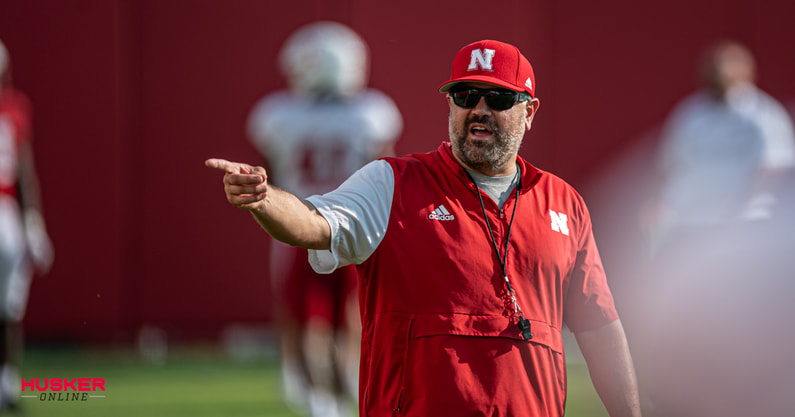Matt Rhule shares emphasis on mental health of Nebraska players

Heading into his first year as the Nebraska football head coach, Matt Rhule is making a point to emphasize taking care of players mental health on top of sports performance mental work. He’s hoping his program is on the cutting edge in this regard.
And while discussing the topic at decent length and with candor not common among coaches, Rhule offered a revelation that, for his profession, is hard to imagine peers making in even the recent past: He’ll go see Dr. Brett Haskell, Nebraska’s director of sports psychology, when he’s feeling depressed, anxious, or anything of the like. He’ll even see her when things are going well.
Rhule wants to instill that culture within his team, that going to see a mental health professional is really no different than seeing a general practitioner or athletic trainer.
“But I say to the guys sometimes, ‘Guys, if you have a tight hamstring, do you go see the trainer?’ They’re like, ‘Yeah.’ I’m like, ‘You break a leg, do you go see the doctor?’ ‘Yeah.’ Well, if you’re feeling a little bit depressed or anxious or nervous, why would you not go see Dr. Haskell?” Rhule said. “I do. And then, if you’re feeling great, then she helps you keep in that zone,” Rhule said on Saturday.”
Haskell has been with the Nebraska athletic department since 2018 and has a department of five mental health and performance providers on staff.
Rhule is making it a point to embrace this resource, both personally and for his program.
It dovetails with a bigger element of modern coaching that Rhule and the Nebraska staff are working to have a firmer grasp on: Modern attention spans.
“I think we as coaches have studied a lot about cognitive load and this generation and the impact of phones on their brains and their ability to concentrate and attention and focus control. Really, to answer your question, all I really want is guys to be able to be able to go from their thinking brain, getting the call, knowing the situation, and then shutting that brain off, focusing in and just reacting. So she’s teaching them how to do that,” Rhule said.
Top 10
- 1New
NFL investigating
Shedeur Sanders prank call
- 2
Most picks by college
2025 NFL Draft
- 3
Louis Riddick
Harsh Quinn Ewers eval
- 4Hot
Shilo Sanders
Lands with NFL team
- 5Trending
Mel Kiper
Eviscerates NFL: 'Clueless'
Get the On3 Top 10 to your inbox every morning
By clicking "Subscribe to Newsletter", I agree to On3's Privacy Notice, Terms, and use of my personal information described therein.
Haskell’s role is now, in part, a bit of a bridge for the coaching staff to speak the language of good mental health. Things like mindfullness or breathing techniques might now come up in a position meeting room, and football tasks that are information-saturated and need to get done before a play clock runs out can be trained mentally as much as they can physically, Rhule has learned.
“We have things that we do football-wise, like cycle of the snap like, ‘Hey, here’s what we want you to do from the end of one snap to the beginning of the next.’ We write ’em all the way out for the guys. So we’re just integrating her into it so she’s using our language and we’re using her language,” Rhule said. “So, I think we’re, hopefully, on the cutting-edge of what we’re doing.”
As the Cornhuskers continue to stay on the horizons of mental health, sports performance and coaching, Rhule is hopeful to hang on to Haskell. He considers to be just as valuable as any member of his coaching staff.
“Dr. Haskell is as important to me as Chris Peduzzi, the head athletic trainer, Corey Campbell [the head strength and conditioning coach], she’s as important to me as the offensive and defensive coordinators,” Rhule said. “It’s so simple.”